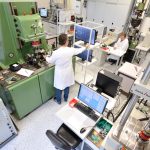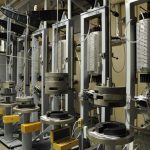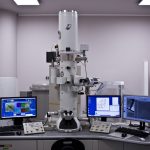 IPMINFRA – website
IPMINFRA – website
Hosting institution: Institute of Physics of Materials, CAS
IPMinfra represents a research infrastructure for study and testing of advanced materials used in engineering applications. The research infrastructure covers particularly the area of long-term mechanical tests (fatigue of materials, creep and fatigue/creep interaction and fracture and failure analysis in broad temperature range) and characterisation of material structure and its changes during loading. The laboratory core of IPMinfra is formed by 35 creep machines with testing range up to 1600°C, 10 fatigue testing machines with testing range from -180°C to 950°C, and 5 electron microscopes. This equipment jointly with a number of other devices (light microscopy, X-ray analysis, electron backscattered diffraction, equipment for measurement of magnetic properties, calorimeters, equipment for mechanical testing, indentation, instrumented impact testers) makes it possible to realize long-term and wide range testing of advanced materials and materials used in new engineering applications. IPMinfra has leading position in material research in the area of long-lifetime materials and their mechanical properties in the Czech Republic. IPMinfra is one of the founding members of the EuroStrain (European Network for Structural Integrity and Additive Manufacturing) consortium, which focuses on the study of new additive metal materials.
Future development
IPMinfra development plan is based mainly on improvement of the quality and availability of provided services for scientific and industrial partners. In the following years, experimental capacities for existing and new users from the academic and industrial spheres will be expanded. It is also envisaged to extend the portfolio of IPMinfra activities related to 3D metal printing.
Socio-economic impact
The modern materials are at the heart of technological progress, covering e.g. the equipment for safe and ecological production of electricity, new generation of high-performance steels for automotive industry, nanomaterials with unique properties, high-temperature superalloys for aircraft engines, life-saving medical implants and functional materials and composites. Such progress could not be reached without deep understanding of the materials properties and fundamental processes defining those properties. IPMinfra opens up excellent facilities to external users, offering the research infrastructure for solving R&D projects and industrial problems and increasing the level of cooperation with academic and application sectors.



